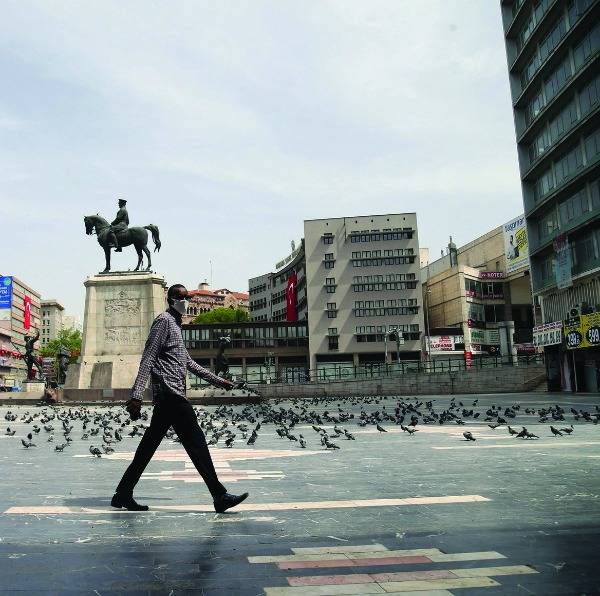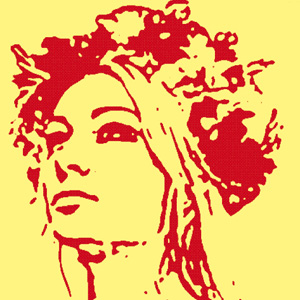
Israelophobia: The Newest Version of the Oldest Hatred and What To Do About It (Constable) by Jake Wallis Simons
The war in Gaza that began on 7 October 2023 was not simply another round in an endless conflict. Since Israel’s “disengagement” from direct occupation of the Gaza Strip in 2005 (retaining effective control of its borders), Hamas and Israel would regularly engage in some time-limited sparring: rockets fired at Israel with some casualties; Israeli bombing of Gaza with many more casualties. Then there would be a ceasefire for a while, with perhaps a prisoner exchange.
One way of understanding the latest war is as an attempt to break out – literally and metaphorically – of this cycle. Hamas crossed Israel’s borders, occupied land, killed civilians and took hostages. The Israeli response has been to announce the intention to destroy Hamas once and for all, inflicting unprecedented civilian casualties and destroying large swathes of the Gaza Strip.
Outside of the region, however, both supporters of the Israelis and supporters of the Palestinians have responded by playing the same old tunes. The only thing that has changed is the scale of the reaction and the volume levels. The rhetoric is, for the most part, as familiar as it is disturbing.
Israelophobia, by Jake Wallis Simons, editor of the Jewish Chronicle, was published just one month before the war began. Reading it post-7 October, it doesn’t suddenly feel dated, but weirdly outside of time. It perfectly encapsulates a certain kind of pro-Israel discourse that has been developed over years and continues up to the present moment with barely a skipped beat.
Simons’s core argument is that hatred of Israel is a “deceitful new form of the oldest hatred”. It is no longer enough to treat it as one component of antisemitism, he writes; it needs to be named on its own. Thus, for Simons, “Israelophobia is a form of antisemitism that fixates on the Jewish state, rather than the Jewish race or religion.” Yet, while the name and the trappings may be novel, the arguments presented in this book certainly aren’t.
Antisemitic criticism of Israel and of Zionism is a real and significant problem. But the important task of fighting those tendencies isn’t helped by hyperbolic – and, frankly, over-familiar – arguments. Simons seems to have no curiosity about pro-Palestinian movements; nor is he interested in Jewish critiques of Zionism, other than treating them as an irrelevant historical curiosity. Instead, whole chunks of the book are spent attempting to demonstrate that contemporary anti-Zionism is nothing more than a continuation of communist and Nazi antisemitism.
Simons does not claim that any and all criticism of Israel is Israelophobic (he himself does not support everything that Israel does). However, the boundaries he erects around “legitimate” criticism are so constraining that even Israeli progressives – including self-defined Zionists – are at risk of being classed as Israelophobic. He not only condemns the use of the term “apartheid”; even the use of the word “occupation” is deemed to be dangerous at best. While Simons concedes that the West Bank is “a mess” (he doesn’t offer any defence of the more radical settlers), he also argues that it is not the “full fat version” of occupation found in Chinese-occupied Tibet.
On that basis he argues that “Like the term ‘apartheid’, using the word ‘occupation’ has strategic benefits ... it can allow the murder of demonised Jews to be framed as a form of ‘resistance.’”
Simons ends the book by setting out an agenda:
“What we must work towards is a future in which Israel is neither demonised nor fetishised but treated for what it is: remarkable in many ways, troubling in many others, but ultimately, with its heroes and villains, just another country.”
Demonisation and fetishisation are certainly endemic to this conflict, but it happens in all directions. Israel is fetishised by the US Christian right and in the emerging “national conservative” movement in the UK and Europe. Palestine is similarly demonised by its enemies and fetishised by its friends. No one in Israel-Palestine is allowed to be “normal”.
Simons also complains of the double standards that see Israel singled out for the harshest criticism when atrocities elsewhere in the world are ignored. It’s certainly true that there is often a breathtaking hypocrisy amongst, for example, that sub-set of the “tankie” left that is outraged by the Israeli bombing of Gaza but ignored, denied or even supported the bombing of Aleppo. But the lesson of this is to work towards a broader recognition of injustices, rather than imply that recognising one alone is unfair.
Simons’s yearning for Israel to be treated “normally” also rests on Israel being “just another country” not just now, but indefinitely into the future. That means that he has to downplay internal threats to Israel remaining the kind of place he can defend. On the inclusion of far-right parties in Netanyahu’s 2023 government he writes only that “several chauvinists found their way into government”. The passive tone reveals an inability or unwillingness to fully confront the “dark side” of Israel, which he admits exists.
The curious passivity found in this book is endemic not just in pro-Israel but also in pro-Palestinian discourse. For those who live outside the region, all too often it is the enemy that has all the agency; one’s own side just reacts. The massacres that Hamas carried out on 7 October 2023 are seen as simply the inevitable, instinctual response to Israeli oppression. The dark side of Palestinian society is either an understandable neurosis that will be given up after liberation, or not worth acknowledging at all.
Of course, the Israel-Palestinian conflict is highly asymmetric. Outside the region though, the situation is much less clear-cut. A pro-Israel campaigner in the UK can be lauded by the Conservative Party and at the same time be treated as a pariah on campus or on the streets. A pro-Palestinian campaigner in Britain can meanwhile be the darling of left-wing opinion and deplatformed from mainstream media outlets.
The contrast between asymmetry in Israel-Palestine and a degree of symmetry outside it is one sign of how disconnected supporters of Israel and the Palestinians often are from the people on the ground they claim to care for. In this respect, Israelophobia is itself an instance of the same fetishisation and demonisation process that Simons claims to decry.
The only even vaguely hopeful thing that has come out of the Gaza war is the widespread sense on the ground that the situation cannot continue like this. When will those of us who are not Israelis or Palestinians decide enough is enough as well? The discourse over here is all too often spectacularly boring in its repetitiveness, at the same time as it is endlessly infuriating. That paradoxical combination may be lulling us into a wakeful sleep in which we lose the capacity for empathy and abandon any chance of actually changing the world.
Books like Israelophobia will not break us out of this cycle. They are instead an expression of angry, inert futility.
This article is a preview from New Humanist's spring 2024 issue. Subscribe now.

